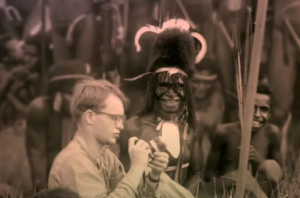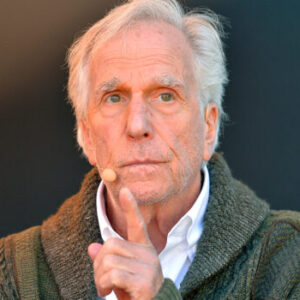When a man from one of the world’s most prominent families ventured into the territory of an uncontacted tribe, it was almost inevitable that disaster would strike.
Michael Rockefeller’s disappearance has remained a mystery for 61 years, and even his final words have been the subject of debate.
Rockefeller, the son of former US Vice President Nelson Rockefeller, was a passionate explorer with a deep fascination for tribal art. His obsession led him to make contact with the Asmat tribe, known for their history of cannibalism.
https://twitter.com/HistorylandHQ/status/1830290858186527106
In November 1961, the 23-year-old embarked on his second expedition to Dutch New Guinea (now West Papua), an Indonesian province on the island of New Guinea. After a successful first encounter, he expected a similarly warm welcome.
He and anthropologist René Wassing set out in a 40-foot canoe, journeying toward the remote southwestern Asmat region.

However, their canoe capsized about three miles from shore. While Wassing was eventually rescued after drifting in the Arafura Sea, Rockefeller was never seen again.
His official cause of death was listed as drowning, but many believe he made it to shore only to be cannibalized by the Asmat tribe. Yet, images that surfaced years later suggested a different possibility…
Nearly a decade after his disappearance, National Geographic sent a film crew to Asmat, capturing photos of the tribe, including one striking image of dozens of naked tribesmen rowing boats. Among them, a naked Caucasian man appeared, bearing a strong resemblance to Rockefeller.
While some were quick to claim this was the missing explorer, others remained skeptical.
Author Carl Hoffman, who conducted extensive research on Rockefeller’s disappearance, including hiring a private investigator and visiting the tribe, has revealed what he believes to be the truth about that fateful day. According to Hoffman, Rockefeller’s last words before attempting a 10-mile swim through crocodile-infested waters were, “I think I can make it.”
Hoffman’s research indicates that after Rockefeller swam ashore in nothing but his underwear, he was met by the Otsjanep warriors. Although Rockefeller had previously been kind and respectful to the tribe, they were not in a welcoming mood. One warrior allegedly stabbed him through the ribs with a spear, and the rest of the group cannibalized him.
Hoffman speculates that Rockefeller’s murder may have been an act of revenge for a violent incident involving Dutch colonists the year before, when local huts were burned, and several high-ranking tribesmen were killed.
While the full truth may never be known, Hoffman’s theory offers a compelling explanation for Rockefeller’s tragic fate.
Wild.





